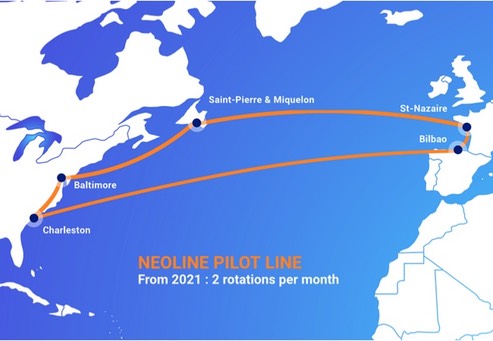Blog
Marine Safety
Two More Duck Boat Workers Indicted In Sinking That Killed 17
KANSAS CITY, Mo. (AP) — A federal grand jury has indicted two more employees of a company that owns a duck boat that sank on a Missouri lake last summer, killing 17 people.
Curtis Lanham, the general manager at Ride the Ducks Branson, and Charles Baltzell, the operations supervisor, were charged with misconduct and neglect in a 47-count indictment that was unsealed and made public Thursday following their initial court appearances, the U.S. attorney’s office said.
The boat’s captain, Kenneth Scott McKee, of Verona, was indicted previously on charges alleging that he failed to properly assess the weather and failed to tell passengers to don flotation devices as conditions worsened.
Other comments on this incident were noted here, here, and here.
Now that summer has arrived, it’s good to review the facts regarding this incident and bear in mind that it could happen again to anyone who doesn’t diligently monitor the weather.
/fl
Transportation
RORO - Under Sail
Here is something unique in today’s “global” economy. The concept of an transatlantic Roll On/Roll Off (RORO) operation under sail power (no doubt with machinery backup/assist). Will the weather and scheduling demands cooperate?
The sizing itself of the pilot project ships is supposed to set us apart from the competition with the main lines which benefit from a large scale effect. As a result, the transatlantic route operated by NEOLINE will focus on a niche market, offering new capacities in terms of type of freight (rolling and out of gauge freight) and destination ports.
The first shipping route plans to connect St-Nazaire to the East Coast of the United States as from 2021, calling at St-Pierre and Miquelon on the return voyage. The objective is to operate this line with two vessels thus offering a fortnight service.
The operational conditions on this route were simulated over 5 years of meteorological history, using a routing study conducted with D-ICE Engineering. The results validated the prospects for bunker savings while confirming that voyage schedules would be met at a commercial speed of 11kt.

Having spent numerous days years ago in the North Atlantic, on those proposed route lines, assisting transatlantic commerce, I wish them success. This will be an interesting project to watch.
/fl
Marine Safety
Navigation Rules: “In Extremis"
The following incident is a good example of an “in extremis” situation. The event took place on the Elbe River in Germany on 08 June 2019. It involved the collision between an 121’ sailing schooner and an 492’ containership.
From the video, we can see that it was daylight and the weather was clear; both vessels were clearly visible to one another. The schooner appears to be close-hauled on starboard tack, on a course intended to have taken it across the bow of the containership; that’s not a wise maneuver—even if they would have had more room! We watch in horrer as the classic collision course, "steady bearing-decreasing range”. unfolds. The schooner sounds the “danger-doubt” signal and stands on until the collision is imminent, and then attempts to come about (tack.) The end of the video shows the crew putting the rudder over.
You can read more about the outcome here.
/fl
Culture and Politics
Septic Government

Well, it happened again. As they did in 2009, Illinois lawmakers decided last weekend that one way out of our state’s long-standing financial crisis is to massively increase the number of ways private citizens can legally gamble their own money [away]….
“An 816-page bill introduced and passed by the General Assembly over the weekend will, if fully realized, transform Illinois into the gambling capital of the Midwest,” writes my colleague, ProPublica Illinois reporter Jason Grotto, in a story we published this week that dissects the massive gambling expansion bill.
An "816-page bill" from the Illinois legislature? I guess the key question is, is it safe for septic system’s?
….and we thought California state government was shaky!
Dr. Albert Mohler also has some comments about the state of Illinois Law in his Daily Briefing today.
/fl
Law and Order
Illegal Charters
The Coast Guard has been cracking down on illegal charters, especially in South Florida. When it comes to transporting people for hire on the water, any attempt to circumvent the law and make a quick buck can turn out to be quite expensive for a boat owner. The purpose and goal of course is saving lives; we have seen too many legal excursions, such as the recent Duck Boat events, turn to tragedy, to taunt fate with illegal operations such as this:
SAINT PETERSBURG, Fla. - The Coast Guard terminated the voyage of a 42-foot pleasure craft with eight people aboard Sunday in Boca Ciega Bay.
Coast Guard investigating officers initially discovered the vessel advertising on social media and determined the vessel was not operating in accordance with regulations governing passenger vessels.
A Coast Guard Station Saint Petersburg 29-foot Response Boat-Small law enforcement boatcrew and investigating officers, boarded the pleasure craft and discovered the vessel was operating a commercial passenger service, and was not in compliance with multiple regulations governing passenger vessels. The following violations were noted during the boarding:
Violation of 46 C.F.R. 176.100 (a) for not having a valid Certificate of Inspection.
Violation of 46 C.F.R. 15.515 (b) for not having a credentialed mariner in control while operating a small passenger vessel.
Violation of 46 C.F.R. 16.201 for failure to have a drug and alcohol program.
Violation of 46 C.F.R. 170.120 for failure to have a valid stability letter.
“The Coast Guard will continue to aggressively pursue vessel operators who place the lives of patrons at risk by not complying with Coast Guard passenger vessel regulations,” said Mr. Brian Knapp, Senior Investigating Officer at Coast Guard Sector Saint Petersburg. “We urge anyone paying for a trip on a passenger vessel to ask to see the Merchant Mariner Credential of the vessel operator to verify their captain is properly credentialed by the Coast Guard. If the operator cannot produce a Merchant Mariner Credential, don’t get on the boat.”
Owners and operators of illegal charter vessels can face maximum civil penalties of over $50,000 for illegal passenger-for-hire operations. Some potential fines for illegally operating a charter vessel are:
Up to $18,477 for failure of an inspected vessel to be under the control of an individual with the appropriate Coast Guard license.
Up to $7,250 for failure of operators to be enrolled in a chemical testing program.
Up to $4,685for failure to provide a Coast Guard Certificate of Inspection for vessels carrying more than six passengers.
Up to $15,995 for failure to produce a valid Certificate of Documentation for vessels over 5 gross tons.
Up to $11,712 for failure to have been issued a valid Stability Letter prior to placing vessel in service with more than six passengers.
/USCG
In case anyone missed it, the Coast Guard also monitors social media!
/fl
Safety
Water Safety
This past April marks the 20th anniversary of a tragic event that occurred at a marina where I was working at the time. A seven year old boy wandered away from his mother and sister, while they were carrying items from the boat to their car, and somehow fell into the water and drowned. The boy could not swim; he had been wearing a PFD while onboard the boat, but had removed that PFD upon going ashore. Nobody saw or heard him enter the water.
The marina had floating docks which were only a foot or so above the water, so he probably didn’t make much noise when he fell in. No one knows for sure, but It’s surmised that he had dropped a toy that he had been carrying into the water, and was trying to retrieve it, when he accidentally fell in; the toy was found floating near one of the nearby walkways shortly after the boy was reported missing. His body was found submerged a short time later near where the toy was found.
There were several people in the general area who were preoccupied with a variety of boat-related activities, including the boy’s dad and myself. Why didn’t anyone hear or see him, or hear him call out for help? The probable answer to that haunting question can be found in an recent article by Mario Vittone.
The Instinctive Drowning Response, so named by Francesco A. Pia, Ph.D., is what people do to avoid actual or perceived suffocation in the water. And it does not look like most people expect it to. When someone is drowning there is very little splashing, and no waving or yelling or calling for help of any kind. To get an idea of just how quiet and undramatic drowning can be, consider this: It is the number two cause of accidental death in children age 15 and under (just behind vehicle accidents). Of the approximately 750 children who will drown next year, about 375 of them will do so within 25 yards of a parent or other adult.
You can read Vittone's article here.
Kids can wander off before you realize that they are gone. For that reason, it’s best to keep them in a suitable PFD at all times when near the water.
/fl
